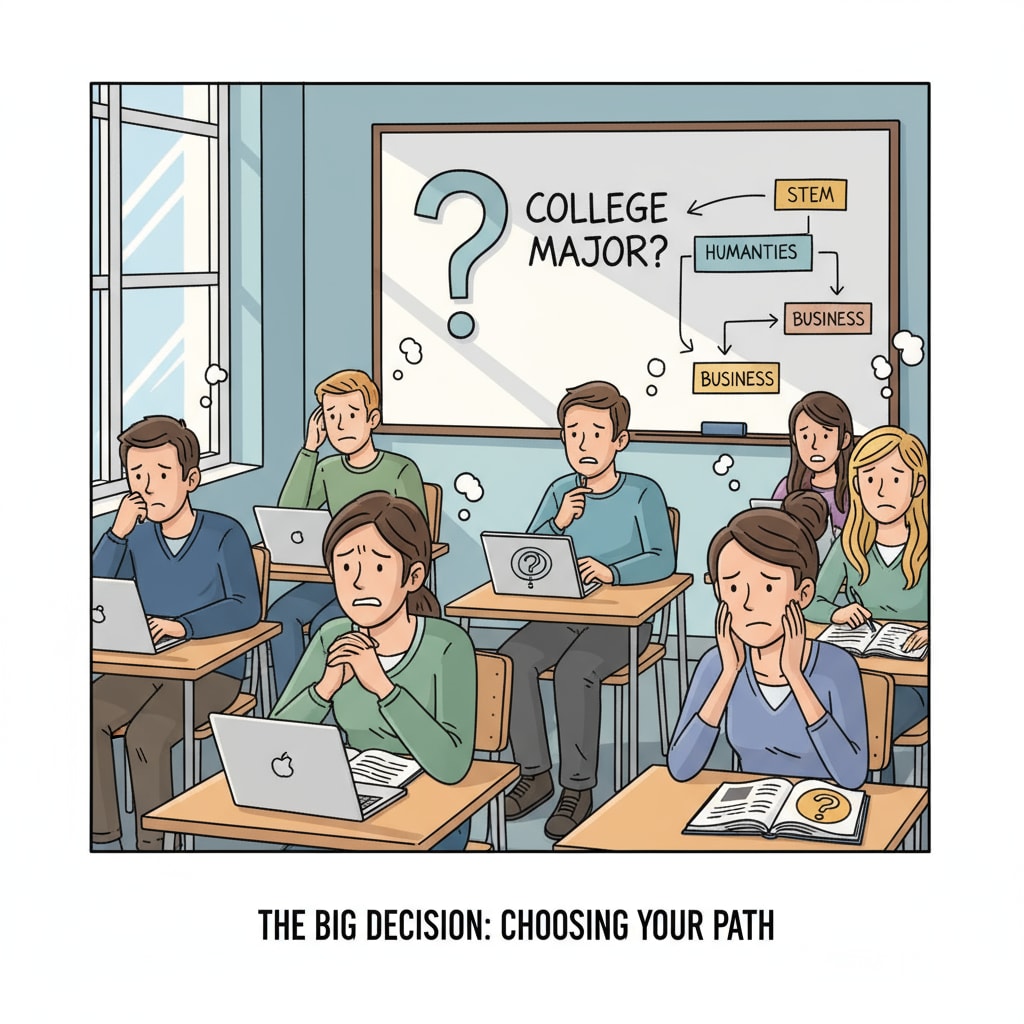College selection, major interest, and career planning are crucial aspects for high school students approaching college. However, a significant number of them find themselves at a crossroads when they lack a clear passion while choosing a college major. This dilemma is prevalent in the K12 education system and requires careful consideration.

The Prevalent Dilemma in K12 Education
In the K12 education system, students are often focused on academic performance, standardized tests, and getting into good colleges. As a result, they may not have had enough time to explore their true interests. Many students are pushed towards certain academic paths without a deep understanding of what they really want to study in college. For example, some students might choose science majors because they are good at math and science in high school, but they may not have a genuine passion for these fields. According to National Center for Education Statistics, a large percentage of students change their majors during their college years, indicating the initial uncertainty in major selection.

Challenges in Making Major Decisions without Clear Interests
One of the main challenges is the lack of self-awareness. Without knowing their true interests, students may have a hard time predicting whether they will enjoy a particular major. Additionally, the abundance of information about different majors can be overwhelming. There are numerous career paths associated with each major, and it’s difficult for students to sift through and understand which one suits them best. Moreover, external pressure from parents, teachers, or society can also cloud their judgment. Some students might choose a major based on its perceived job prospects or prestige rather than their own inclinations. As stated by American Psychological Association, external influences play a significant role in students’ major decisions.
Readability guidance: Here we see how lack of self-awareness and external pressure are key factors in the challenges of major selection. Each factor is presented clearly to help readers understand the complexity of the situation.
Practical Strategies for Wiser Choices
To make more informed decisions, students can start by taking career assessment tests. These tests can help identify their strengths, weaknesses, and potential interests. Another strategy is to engage in internships, volunteer work, or shadowing experiences. For instance, if a student is considering a business major, they can intern at a local company to get a taste of the field. Additionally, students should have in-depth conversations with college alumni, current students, and career counselors. These people can provide valuable insights into different majors and career paths. By doing so, students can gradually gain a better understanding of themselves and make more appropriate college major choices.
In conclusion, the lack of a clear passion while choosing a college major is a real concern for high school students. However, by being aware of the challenges and implementing practical strategies, they can navigate this difficult decision-making process more effectively. College selection, major interest identification, and career planning are intertwined, and with careful consideration, students can set themselves on a path that aligns with their future goals.


